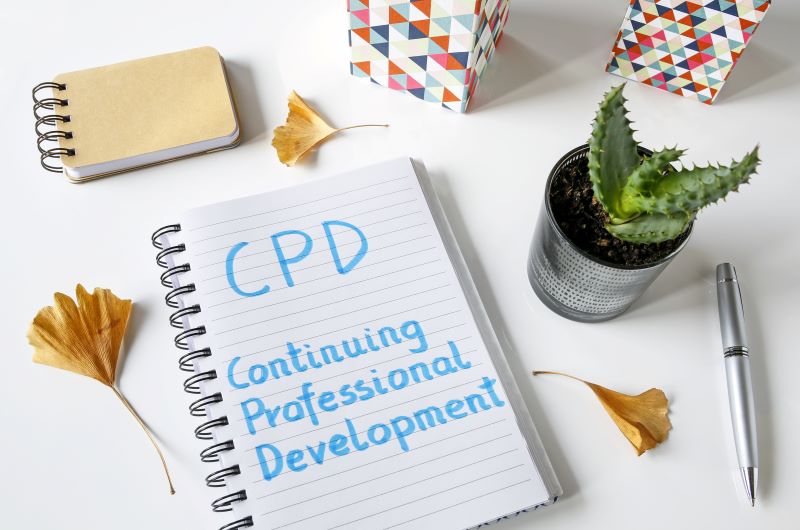How to protect clients amid increasing HMRC enquiry activity
With enquiry activity increasing as HMRC pursues a £42 billion tax gap, and the department’s enquiry tactics...
READ MORE
It’s easy to think of continuing professional development (CPD) as a chore – an annual chore you do each year because your institute requires it, or to keep your boss and HR off your back. Yet this is doing CPD – and your career – a disservice.

You can use CPD (education, practical experience and training to develop professional knowledge, skills and ethics) to develop your career, increase your income and improve the performance of your organisation.
Financial Accountant asked business coaches, recruiters and accountants for their tips on how to make the most of CPD.
Fast track your career
“There’s no denying that career progression and continued learning go hand in hand,” says Karen Young, director of accountancy and finance at Hays, a recruitment company. “Teaching yourself something new will bring you one step closer towards your next promotion as well as reignite the passion you felt when you first started out in your role.
“This enthusiasm will not only motivate you to drive your own career forward but will also filter across to those you work with, inspiring those to grow their skills and expertise – all of which will help get you noticed by the right people.”
Keep up to date with technical changes
What are the most useful CPD courses/modules for accountants in small accounting firms and small businesses?
Young highlights the accounting standards FRS105 for micro entities and FRS 102, which apply to financial statements for accounting periods beginning on or after 1 January 2019.
Nikki Thomas, a career coach who has worked with accounting firms, says CPD trends for accountants include regulations (compliance and tax) and how Brexit will affect businesses, for example, on exports.
Get out of the office and network
CPD isn’t just textbooks and online programmes. It’s also seminars and conferences, where you can make new contacts, find a new job and get new clients.
“One problem [with working in an office] is that people are stuck speaking with the same people over and over again,” says Thomas.
Going to CPD events outside your organisation helps you find out what your clients are “struggling with”, Thomas says.
And as more of people become self-employed, or switch jobs or careers during a longer working life, building your “personal brand” is one of the biggest things people can learn from CPD, Thomas adds.
Improve staff morale and productivity
If you’re a manager, CPD can help boost the morale of your staff, which in turn can improve their performance and the performance of your organisation.
When Anthea Morris joined Citizens Advice as a financial controller, she ran the charity’s CPD for the finance team. She used an education and training company for classroom training.
“I arranged updates on the Charities SORP ['Statement of Recommended Practice' for preparing financial reports] and new accounting standards,” she says. “We went beyond what was needed and did a lot of work on the international financial standards, even though it didn’t apply to charities, because we recognised that best practice may move in that direction. It helped us all think about the different ways that we could use finance to produce results … that would meet the requirements of our funders.”
The accountants “loved” the CPD, she says. “I think it buoyed everyone up that we were taking CPD seriously enough to consider things that weren’t strictly relevant to our jobs and perhaps more relevant to our careers, inside and outside the organisation. I think people felt invested [in].”
The accountants’ performance improved after the CPD, Morris says, including their communication with budget holders. The accountants were more confident and more knowledgeable, she says.
Avoid being replaced by a robot
In ten years, much of book-keeping will probably be automated. Artificial intelligence will probably struggle to master empathy and humour, though, meaning communication skills for accountants will become even more important, says Mark Lee, a speaker and mentor for accountants.
Annual accounts and tax returns are an easy sell because they are a legal requirement. Businesses outsource the tasks to accounts because they can’t be bothered to do them, or don’t have the skills or time. As traditional accounting services are automated, accountants will become reliant on advisory services, such as business development, tax advice and cashflow management.
“For accountants to get business in they will need to be far better at pitching and promotion to secure the service,” Lee says.
Nick Huber is a freelance journalist
How to get the most from CPD (source: IFA)
All members of the IFA, other than those who are exempt from CPD, must complete 40 hours of CPD in any year, of which 20 hours must be verifiable.
Examples of verifiable CPD activities include formal qualifications, conferences, branch meetings and training.
Other types of CPD activities include independent research on technical issues, reading accountancy related publications, websites, emails, alerts, blogs and social media. So, any activity that enhances your knowledge and skills counts as CPD. The CPD activity does not have to be provided or accredited by the IFA.
IFA’s education manager Susan Divall explains IFA Direct and what it has to offer.